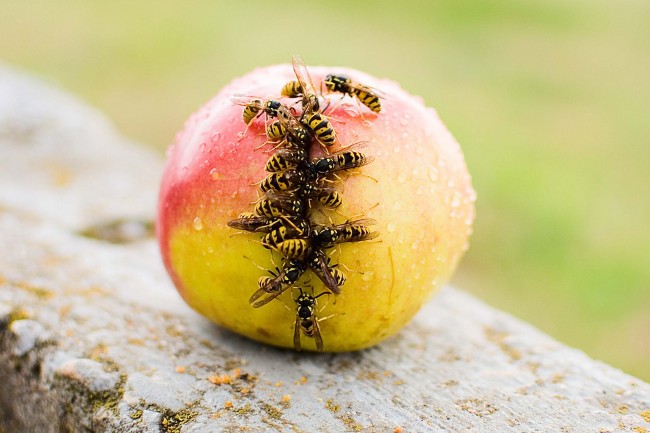Dr Joseph Guhlin is hoping his IT background will play a part in expanding the science of genomics into new frontiers, furthering biological research of important New Zealand species.
Joseph holds a postdoctoral fellowship with Genomics Aotearoa, working with the High Quality Genomes project, based at the University of Otago.

Joseph Gulin at work
His plans are both to create high-quality assemblies and reusable bioinformatics tools - currently he is focused on invasive wasps. The research group is looking at the genomes of three species of wasp, two of which (the common and the German) were sequenced in New Zealand. Both were accidentally introduced last century, and are a massive threat to New Zealand’s ecosystem.
Various research projects are underway to look at controlling these invasive pests in this country, but fundamental to this is understanding the genome. Variations and similarities across the genomic sequences of three distinct species will help improve understanding of this pest. Identifying the genes responsible for essential functions will help us to understand wasp characteristics - this knowledge then becomes an invaluable resource from which control treatments are made.

German wasps
“We are currently exploring the gene content of these three wasps to understand commonalities and differences, and how this may impact their range, spread, and evolutionary characteristics. In doing this, we also improve our understanding of the best practices for exploring multiple genomes in tandem."
“I see genomics as being able to open the lid on wasp genes. The wasp genome will become a resource for other researchers to answer specific research questions, which in turn will help develop new tools for large-scale control of the species, in New Zealand and elsewhere.”
One of Joseph’s interests is creating reusable bioinformatics software tools to aid other researchers with genomic analysis. “As a computer person I always have an eye on how to simplify the process – I don’t want to repeat something if there is a better way to manage the data sets.”
He’s particularly interested in machine learning - a field of computer science that uses statistical techniques to give computer systems the ability to 'learn' from data autonomously, and is keen to look at how to adapt that technology for genomics use.
He started in computer science, studying and working in Texas, USA, before moving into botany, exploring the genomes of plant and microbial species for his Ph.D. in Minnesota. He then decided to extend his career in bioinformatics and genomics after visiting New Zealand in 2017. Although he’s only been in Dunedin a short time, Joseph is loving the city, and the two dogs he and his partner have brought in from the US are already very much at home exploring nature.
Joseph’s areas of expertise:
• Genomics, assembly, variant calling
• Gene prediction
• Programming
• Pan-genomics
• Multi-omics data integration
• Genomic association of quantitative traits
World first - wasp genome completed
See also Wasps are forever? The potential to eliminate an invasive pest in New Zealand; permissions withstanding
A blog by Gemma McLaughlin, University of Otago PhD candidate, December 2020
Read more about High Quality Genomes and Population Genomics here